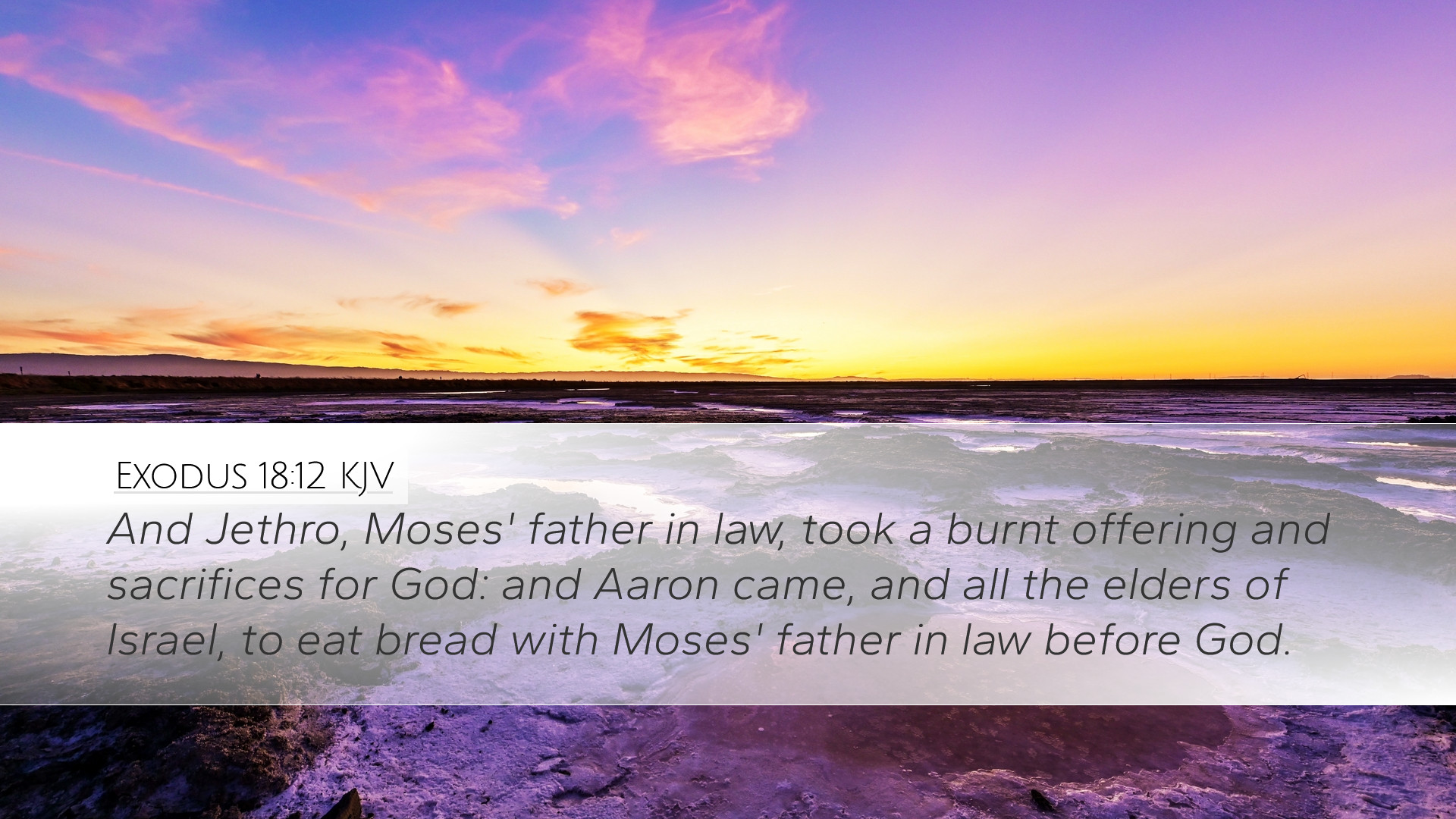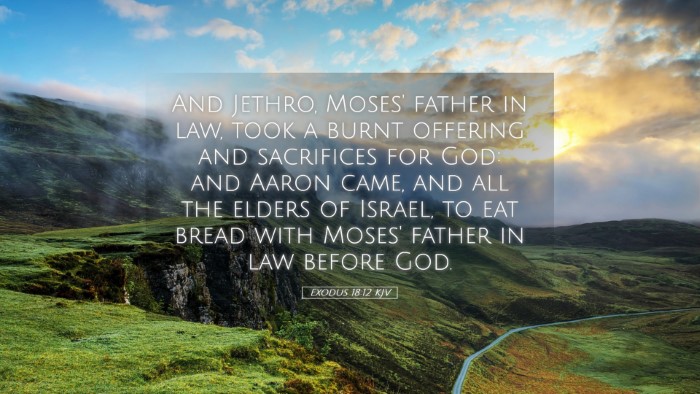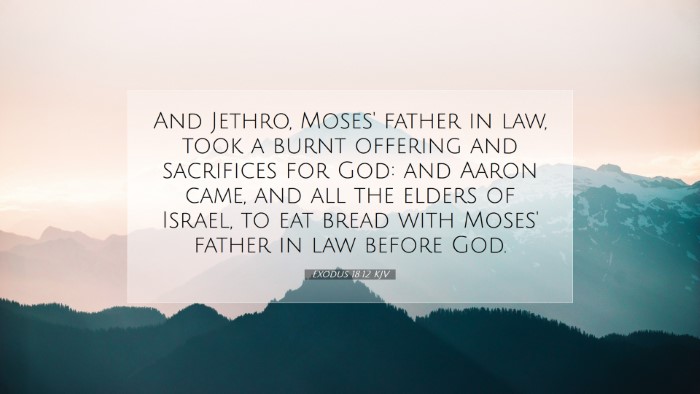Exodus 18:12 Commentary
Exodus 18:12 states: "And Jethro, Moses’ father-in-law, took a burnt offering and sacrifices for God: and Aaron came, and all the elders of Israel, to eat bread with Moses’ father-in-law before God."
Context and Background
This verse is situated within a key narrative where Moses receives advice from Jethro, his father-in-law, regarding the governance of the Israelites. Jethro's wise counsel emphasizes the importance of delegation and community participation in leadership. This interaction is critically important for understanding both the personal and communal aspects of worship and leadership within the community.
The Significance of Jethro's Actions
According to Matthew Henry, the offerings made by Jethro reflect a deep reverence for God and signify a moment of communal worship. Jethro, being a priest of Midian, demonstrates an understanding of divine worship and acknowledges the God of Israel through these sacrifices.
- Covenantal Relationship: Jethro's offer symbolizes the working of the covenant between God and the Israelites, establishing a relationship that extends beyond just rituals to include community and family ties.
- Inclusivity in Worship: The presence of Aaron and the elders signifies an inclusive approach to worship, which not only honors God but also strengthens the communal bonds within the Israelite nation.
Exegesis and Theological Insights
Albert Barnes emphasizes the importance of the burnt offering mentioned in this verse. This type of sacrifice is wholly consumed, symbolizing total dedication to God. It illustrates how believers should approach God with totality, dedicating themselves and their efforts.
The act of eating bread together in the presence of God as described indicates fellowship and shared purpose. Adam Clarke reinforces this by outlining the significance of hospitality and the sharing of meals as a foundational element of community relations, particularly in a religious context.
- Theological Reflection: The gathering around the table epitomizes partnership in worship and signifies unity among leaders and the people of God.
- Symbol of Agreement: The meal can be seen as a sign of Jethro's acceptance of the God of Israel and a form of covenantal agreement among the parties involved.
Leadership Lessons from Jethro’s Example
This verse serves as an important lesson in leadership. Jethro exemplifies humility and respect for God's authority. He does not merely come to observe but actively participates in the worship of the community. From this, pastors and leaders can draw several key lessons:
- Value of Community: Leadership should encourage congregational involvement in spiritual practices. Jethro’s advice to Moses culminates in a system where others are involved in decision-making.
- Wisdom in Counsel: Leaders should seek and value wise counsel from those who have the experience and knowledge, much like Moses did with Jethro.
- Worship as a Central Element: Prioritizing worship, even amidst significant leadership responsibilities, is crucial for spiritual vitality.
Conclusion: A Model for Modern-Day Believers
Exodus 18:12 highlights not only the act of worship itself but also the broader implications of community, governance, and the necessity of honoring God through collective actions. As church leaders, theologians, and Bible students reflect on this verse, they should consider how the principles demonstrated by Jethro apply today:
- Encouraging Community Participation: Is the church fostering an atmosphere where its members can contribute meaningfully?
- The Role of Elders and Leaders: How can leaders ensure they are acting in accordance with God’s will while also valuing input from others?
- Preparing for the Future: As the church grows, adaptability and wisdom in leadership are essential, which can be gleaned from Jethro’s recommendations to Moses.
Ultimately, the example set forth in this passage encourages a balanced approach to both authority and collaboration, inviting all members into a richer relationship with God through worship and communal life.


